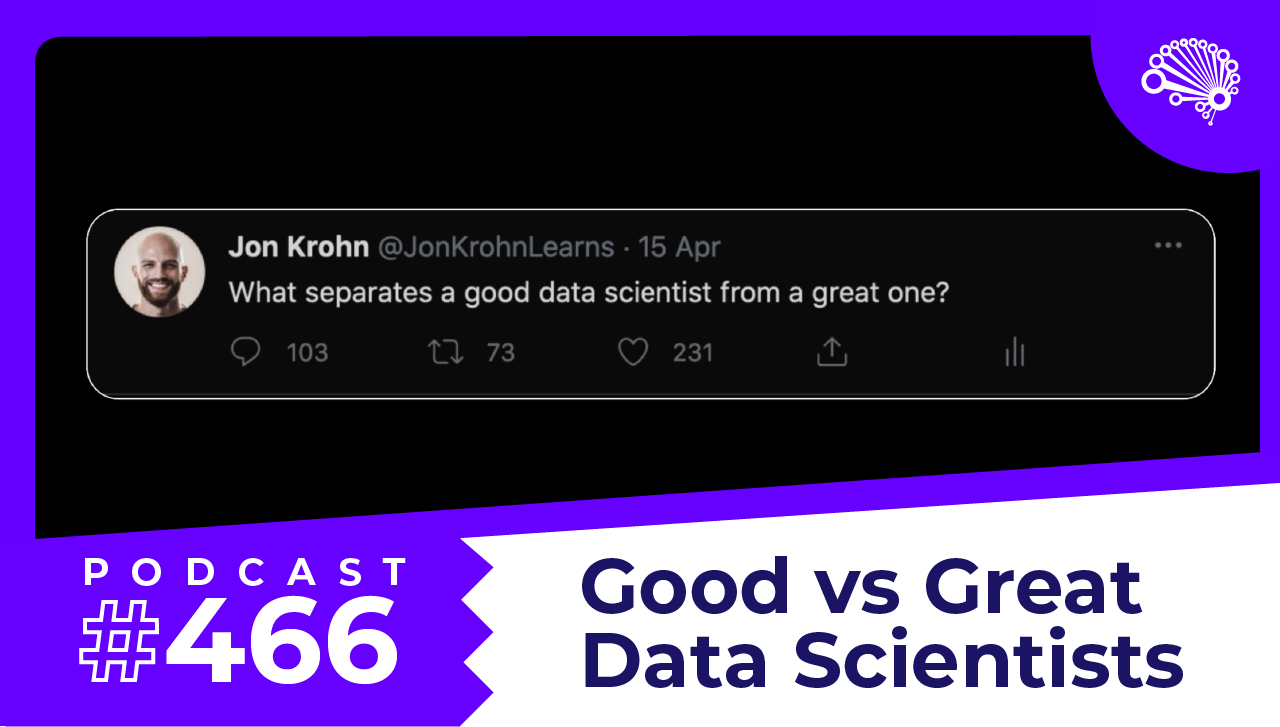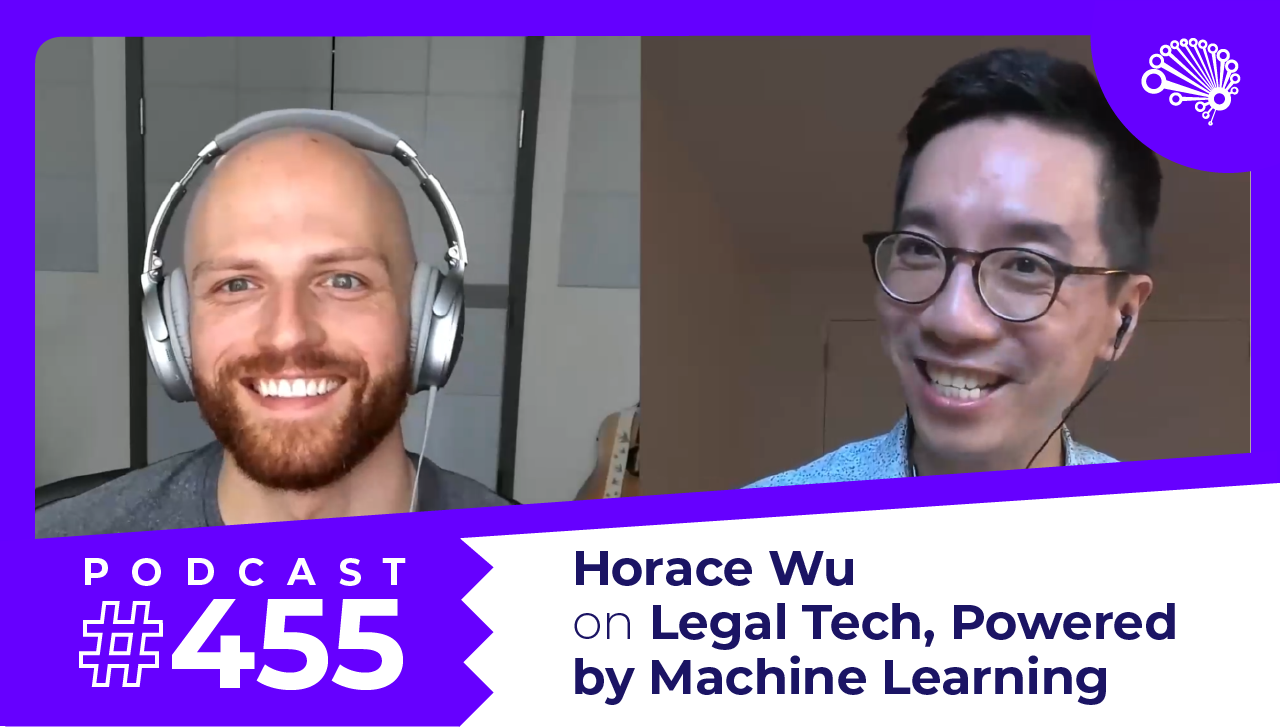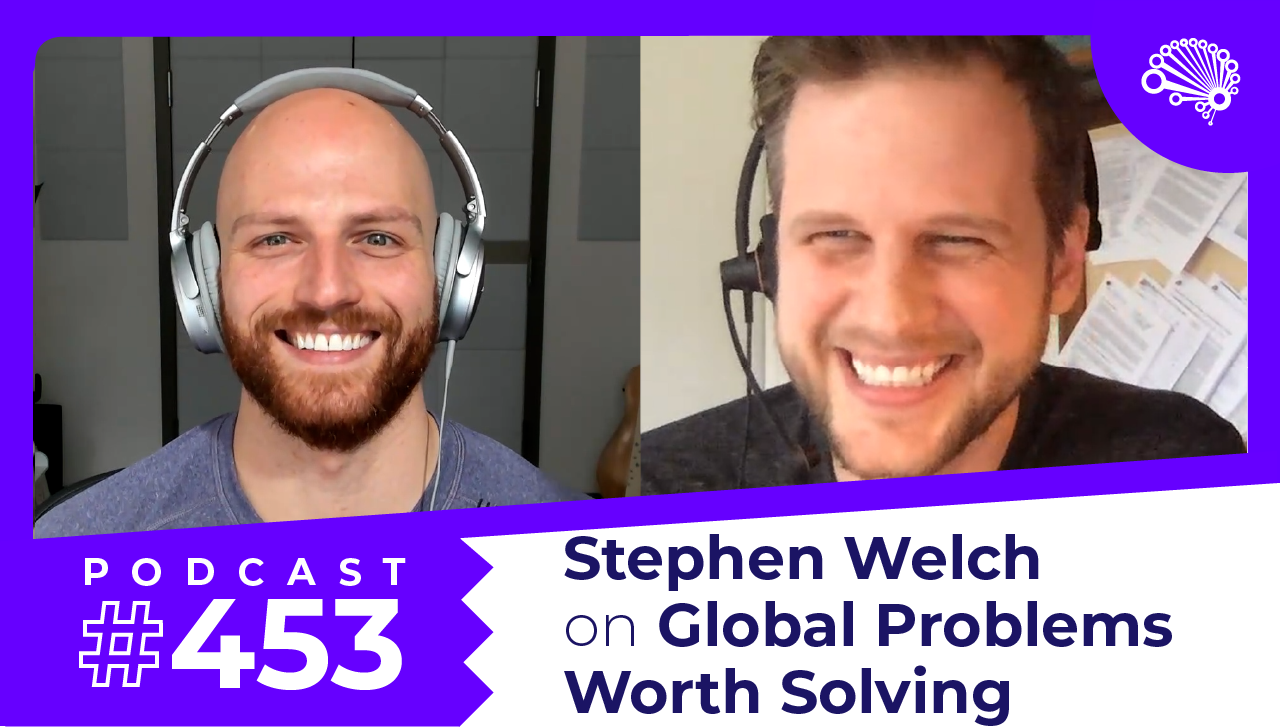Today's video introduces Limits, a key stepping stone toward understanding Differential Calculus. This one has lots of interactive Python code demos and paper-and-pencil exercises to ensure learning the subject is both engaging and fun.
We release new videos from my "Calculus for Machine Learning" course on YouTube every Monday and Thursday. The playlist is here.
Filtering by Category: Data Science
Machine Learning at NVIDIA
This week's guest is absolute rockstar Dr. Anima Anandkumar, who's both professor at prestigious Caltech and director of ML research at NVIDIA. The episode is exceptionally content-rich but also lots of fun; Anima was a joy to film with.
In the episode, Anima fills us in on:
The cutting-edge interdisciplinary research she carries out (applying highly optimized mathematical operations to allow state-of-the-art ML models to be executed on NVIDIA's state-of-the-art GPUs)
How this blending of leading software and leading hardware enables world-changing innovations across disparate fields, from healthcare to robotics
What it's like in the workweek of a researcher bridging the academic and industrial realms
The open-source data science tools and techniques that she most highly recommends
Listen or watch here.
Calculus of the Infinitesimals
New YouTube video up! In today's we use a hands-on code demo in Python to see how approaching a curve infinitely closely enables us to determine the slope of the curve. This is key to formally understanding differential calculus.
The YouTube playlist for my "Calculus for Machine Learning" course is here.
99 Days to Your First Data Science Job
He's BAAAAACK! Kirill Eremenko is the GUEST on the SuperDataScience show for the first time. In this episode, he details his exceptional new learning pathway that enables folks to land their first data science job in 99 days.
We also cover:
• What Kirill's been up to; life philosophies he's honed
• 5 myths holding people back from starting a data science career
• 5 items you need to land a data science job
Kirill created the SuperDataScience podcast in 2016 and hosted the program (over 400 episodes!) until passing the torch to yours truly on January 1st.
Kirill also founded the SuperDataScience company and is the firm’s CEO today. SuperDataScience.com, the namesake of this podcast, is a comprehensive online education platform for data science and related data specializations. Through SuperDataScience.com and his Udemy courses, Kirill has taught well over a million students worldwide, launching countless data science careers.
You can listen or watch here.
The Method of Exhaustion
New video up on YouTube today, covering a centuries-old calculus technique called the Method of Exhaustion. The technique is still relevant today as a stepping stone to understanding how modern calculus works.
The YouTube playlist for my "Calculus for Machine Learning" course is here.
Learning Deep Learning Together
I'm joined today by Prof. Konrad Körding of the University of Pennsylvania, a world-leading researcher on links between biological neuroscience and A.I. He also leads Neuromatch Academy, a super cool group-based deep learning school.
Neuromatch is an innovative, hands-on program for learning deep learning that matches students with similar interests, languages, and time zones into tight-knit study teams. This matching approach is wildly successful, with 86% of students completing the program, compared to a 10% industry average.
In the first half of the episode, we go over the details of the Neuromatch curriculum, providing you with a survey of all of the state-of-the-art deep learning approaches. The second half is a mind-blowing exploration of the limits of artificial neural networks today and how incorporating more biological neuroscience may enable machines to develop artificial general intelligence (AGI) — i.e., machines that learn as well as humans do.
Listen or watch here.
The History of Data
Last month, I thought I was taking a risk by doing an episode on the History of Algebra, but it was an unusually popular episode! To follow up, today's Five-Minute Friday is on the four-billion-year History of Data — hope you enjoy it 😁
You can watch or listen here.
New Series: Calculus for Machine Learning! Plus a New Video Schedule
With all of the Linear Algebra of my Machine Learning Foundations series already available on YouTube, it's time for a new subject: Calculus! The first Calculus video — an intro to the subject — is live today!
Up until now, I've been releasing my YouTube videos in thematic blocks, however I'm going to try something new now to set clearer delivery-timeline expectations with you. Starting with this video, I'll release a new YouTube video every Monday and every Thursday.
My Calculus for ML YouTube playlist is here. The series is full of hands-on demos in Python (particularly the NumPy, TensorFlow, and PyTorch libraries) and all of the code is available open-source in GitHub.
The first quarter of the series covered Linear Algebra. We're now kicking off the second quarter, on Calculus. The third quarter will be on Probability and Statistics. The final one will be on Computer Science (Data Structures, Algorithms, and Optimization).
High-Impact Data Science Made Easy
Today, the wise Noah Gift weighs pros and cons of data science learning options (university degrees vs online certifications; full-time vs on-the-job) as well as how MLOps can quickly make you exponentially more impactful.
Noah has worked in countless technical leadership roles. He held the roles at companies ranging from tech start-ups he founded to prominent institutions like ABC, Caltech, and AT&T. Today, Noah’s founder of a consultancy called Pragmatic AI Labs — and he devises and teaches data science curricula at several of the most prestigious American universities, including Duke, Northwestern, and Berkeley. He has written eight books, including the bestselling Python for DevOps and the forthcoming Practical MLOps.
On top of all that incredible background, Noah has rich, well-formed life philosophies, which we dig into into detail. I learned a ton from him during this episode, and have been thinking about concepts we discussed time and again since filming. I highly recommend checking the episode out!
You can listen or watch here.
Good vs. Great Data Scientists
What separates a good data scientist from a great one? I asked this on Twitter recently and received hundreds of replies — some witty, others very thoughtful. For today's Five-Minute Friday episode, I review and summarize the thread.
The Tweet has had a crazy 7k engagements on 220k impressions so far — evidently it's a topic that lots of people have an opinion on. I highlighted some of my favorite individual replies in the video, including those from Martin Goodson, Chris Albon, Brandon Rohrer, Chelsea Parlett-Pelleriti, and Isabella Ghement.
What do you think? Let me know if I missed anything important!
You can listen to or watch my video summary here, or you can click through for the blog-post version.
The full Twitter thread is here if you'd like to dig through the entirety of the collective wisdom.
Read MoreAnalytics for Commercial and Personal Success
I believe the easiest way to attain success — in personal or professional endeavors alike — is to rigorously track and analyze the right data. Konrad Kopczynski is a master on this topic and he joins me for this week's guest episode.
Whether you're developing machine learning models, maximizing your company's profitability, or tackling a full-length Ironman triathlon, if you're disciplined about data collection, tracking, and reflection, you can iterate, improve, and achieve your dream state. This is a central tenet of my life and much of my ideology on it has been influenced by my near-decade-long friendship with Konrad.
Konrad is the founder and managing partner of impakt Advisors, a consultancy that specializes in harnessing data for, well, impact. They structure the various data sources into thoughtfully constructed data warehouses and then layer on top analytics, data-science models, and visualizations to enable real-time reports, dashboards, and predictions across all the key areas of a business, including digital marketing, customer retention, behavioral segmentation, and profit margin.
Listen to or watch here.
A.I. vs Machine Learning vs Deep Learning
"A.I.", "Machine Learning", and "Deep Learning" are terms that are often thrown around interchangeably. They shouldn't be! For Five-Minute-Friday this week, I define each of the three terms in straightforward language.
You can watch or listen to the episode here. Or you can expand below to read my blog post version.
Read MoreTime-Series Analysis
Matt Dancho joins me on this week's SuperDataScience guest episode, which is dedicated to time-series analysis. We cover what it is (modeling financial data and other quantities that vary over time) as well as the state-of-the-art techniques and tools.
Matt is the founder and CEO of Business Science, an educational platform dedicated to commercial applications of data science. He's a heavy contributor to open-source projects, particularly the Modeltime ecosystem of R packages he devised. Modeltime makes working with (and modeling!) time-series data both tidy and easy.
Listen or watch here!
MLOps for Renewable Energy
You're in for a treat with Samuel Hinton! The first half of this week's guest episode is a mind-blowing journey on our ever-expanding universe. The second half is on Machine Learning Operations and how Sam uses it to shift the world to clean energy.
Sam is a witty polymath. He's a data scientist, astrophysicist, software engineer, former Survivor contestant, beloved online instructor, and most recently a fiction writer. In his role as Data Scientist at the Arenko Group, a renewable energy company, he leads MLOps, enabling efficient experimentation and productionization of ML models.
Listen or watch here.
Tackling Climate Change with ML
Vince Petaccio II joins me on the SuperDataScience podcast this week to detail how individuals in general — and data scientists in particular — can make a meaningful difference in the fight against climate change.
Particular green machine learning applications we covered include:
• Optimizing energy delivery
• Precision agriculture and vertical farming
• Identification of misinformation
• Climate modeling
Vince is a data scientist at Amazon Web Services (AWS), a sorely-missed former colleague of mine at untapt/GQR, and a brilliantly articulate advocate for climate action through his work as a volunteer lobbyist for the Citizens' Climate Lobby.
Listen or watch here.
Landing Your Data Science Dream Job
This week, the inspiring Harpreet Sahota joins me on the SuperDataScience show to fill you in on how to land your data science dream job — whether it’s a more senior role or your first foray into the field.
Harpreet is an eminent contributor to the data science community. It's unbelievable how much he gives to world each week. He:
Hosts the The Artists of Data Science podcast
Is the principal mentor at Data Science Dream Job
Hosts weekly office hours that anyone can drop in on
With Kate Strachnyi, founded and hosts the inaugural (and forthcoming) Data Community Content Creator Awards
Despite all of the above, Harpreet's remarkably humble — and capital-S Stoic! Oh, and he has a day job too! He's the lead data scientist at Price Industries, a global industrial leader in HVAC manufacture, and in the episode he details for us data models he's built for them.
You can listen (or watch) here.
Legal Tech, Powered by Machine Learning
This week, Horace Wu fills us in on how to bootstrap an ML start-up — without outside capital while still earning an income! We also cover how AI can advance the legal sector and how to pivot your career from services to start-up founder.
Syntheia, the latest company Horace founded, augments human lawyers with the power of the (typically millions) of historical documents at their firm. Using a combination of NLP and machine vision (then surfaced in Microsoft Word using javascript), Syntheia provides lawyers with suggestions on tricky points in contracts and automates the generation of clauses.
Prior to founding Syntheia, Horace was an attorney at top firms in Australia and the US. At Syntheia, he works closely with his team of data scientists and developers to solve complex problems for the legal profession. Especially for a supposedly non-technical founder, he displays a stunning depth of knowledge of NLP models and full-stack model deployments.
You can listen and watch here: superdatascience.com/455
Big Global Problems Worth Solving with Machine Learning
In this week's episode, Stephen Welch joined me to discuss 10 big global problems worth trying to solve with data science and machine learning. Perhaps you'll be inspired to tackle one or two yourself!
2020 presented a lot of challenges to a lot of folks around the world. For Stephen, the challenging year was compounded by intense delivery targets for him and his team on a machine vision-enabled system that automatically detects defective industrial products. After delivering this fascinating edge-deployed software into production, Stephen was able to finally come up for air and he reflected on what's most important in one's life — culminating in his list of 10 global problems worth solving.
Stephen is VP of Data Science at Mariner, where he leads a team developing deep learning-based solutions to manufacturing problems. Prior to working with Mariner, Stephen was VP of Machine Learning at Autonomous Fusion, a firm specialized in self-driving cars. He’s also an adjunct professor at University of North Carolina at Charlotte and the creator of the gorgeous math-focused YouTube channel WelchLabs, which has over 200k subscribers and 10M views.
You can listen or watch here.
The Staggering Pace of Progress
This podcast episode is based on a blog post I published for GQR. See here.
For millennia, you might not have witnessed a single innovation in your lifetime. In the 20th Century, any job changed dramatically. In the coming decades, automation will dramatically change all aspects of life many times over.
In this week's FiveMinuteFriday, I examine this acceleration — this staggering pace of progress — through the lens of the recruitment industry that is facilitating a lot of the change.
Listening and viewing options here.
Translating PhD Research into ML Applications
Dan Shiebler has a pretty unambitious hobby: a full-time University of Oxford PhD 😂! Dan researches Category Theory, a math branch that categorizes items by their behavior. By day, he's Staff Machine Learning Engineer at Twitter.
In this week's SuperDataScience episode, Dan explains to me how relatively pure mathematical research translates to improving real-world ML applications.
We also discuss:
• How Twitter labels huge datasets
• How Revenue Science can boost ad performance
• What the responsibilities of a staff software engineer at a big tech company are
• What skills are sought after in data science hires at Twitter
Listening and viewing options here.






